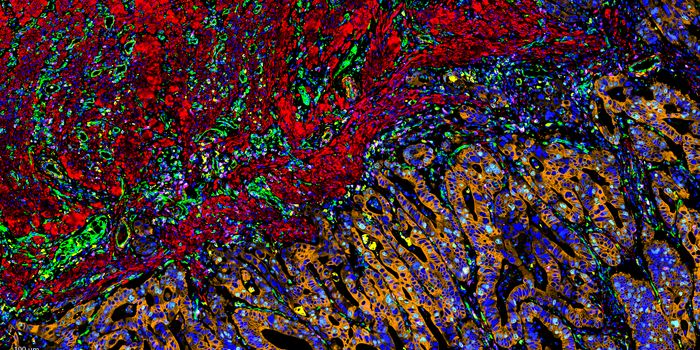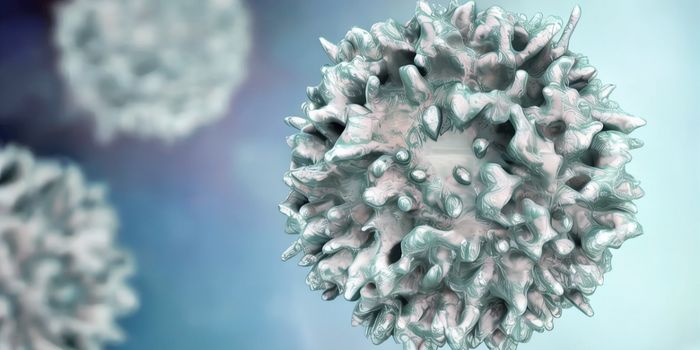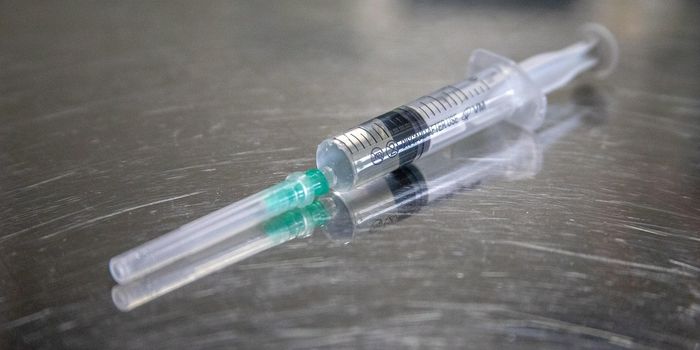Novel PD-L1/TGF-ß Fusion Protein for HPV-Associated Cancers Enters Phase II Clinical Trial
The National Cancer Institute is sponsoring and recruiting for a Phase II Clinical trial focused on Human Papillomavirus (HPV) associated cancers and a new treatment option called M7824. M7824 is a 177 kDa protein that acts on both the adaptive and the innate immune system. This therapy is unique because it is bi-functional in its immunotherapeutic targets. It is novel because one directional approaches in this manner have not always yielded anticipated results, but the bi-functionality of this molecule simultaneously binds programmed cell death ligand 1 (PD-L1) and transforming growth factor-ß (TGF-ß). In studies done prior, M7824 successfully inhibited these two molecular pathways used by cancerous cells to avoid destruction by the body’s natural immune system.
The Human Papillomaviruses are a family of related viruses. There are more than 200 types published in the literature that affect different areas of the body. Reportedly, about 40 of these types affect the genitals and the infection is spread through sexual contact with an affected partner. Some of these types are associated with and cause cancers of the cervix, anus, vulva, vagina, penis, mouth, and throat.
According to the Centers for Disease Control and Prevention, HPV is the most common sexually transmitted infection (STI) and it is estimated that 79 million Americans are infected, most of these being high school or college aged individuals. HPV-associated cancers usually develop years after HPV exposure; the virus is usually latent in the patient, so they are not aware of its presence. The development and pathogenicity of HPV into HPV-associated cancer is not well understood. It is currently not possible to predict which infected individuals will develop HPV-associated cancers and which will not. There is no current test to determine a person’s HPV “status”. There are screening tests available, but these are designed to screen for cervical cancer.
HPV-associated cancers are often incurable and do not improve by standard therapies. The currently proposed clinical trial for M7824 is looking to open the pathway for the patient’s immune system to act on the tumors and shrink them in people with HPV cancer.
The Phase I trial of M7824 had promising activity with 44% of patients having preliminary evidence of clinical benefit. M7824 is a fusion protein made up of monoclonal antibodies against human PD-L1. PD-1 is a receptor protein found on T-cells. When it is complexed with PD-L1, the T-cell is blocked from acting in a T-cell response. This regulatory mechanism is in place to protect healthy cells from destruction. Tumor cells overexpress PD-L1 and binds to active PD-1 on the activated T-cell surface inhibiting that T-cell’s cytotoxic effect. These deactivated T-cells remain in the tumor microenvironment. The antibody portion of M7824 binds that PD-L1 receptor on the tumor surface, thus leaving the active T-cell primed for immune attack against cancer cells. M7824 also has an extracellular domain of human TGF-ß receptor II. TGF-ß is widely accepted as a master key in tumor innate immunity; TGF-ß signaling has tumor suppressor and oncogenic activity. Tumor cells inactivate or dysregulate expression of components from this signaling cascade; the TGF-ß “trap” fused to the PD-L1 antibody captures TGF-ß molecule which disallows the errant signaling process associated within the tumor microenvironment.
The TGF-ß signaling pathway and overexpression are significantly associated with HPV cancers. Alone, these immune therapies have had modest success but combined, their complementary roles are exciting oncology researchers.
Sources: National Cancer Institute, NIH-ClinicalTrials.gov, AACR Clinical Cancer Research, Centers for Disease Control & Prevention, National Institutes of Health-National Library of Medicine, Science & Translational Medicine,









